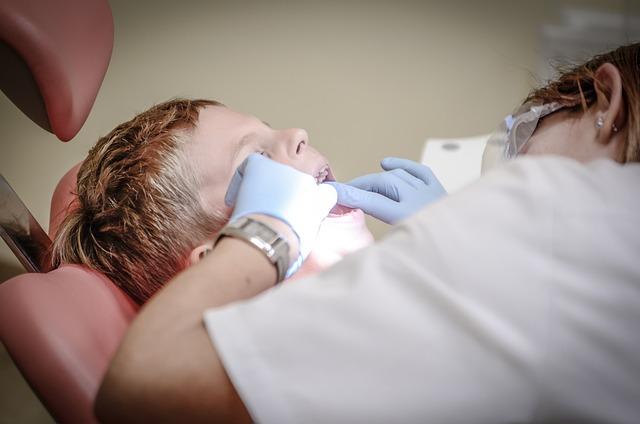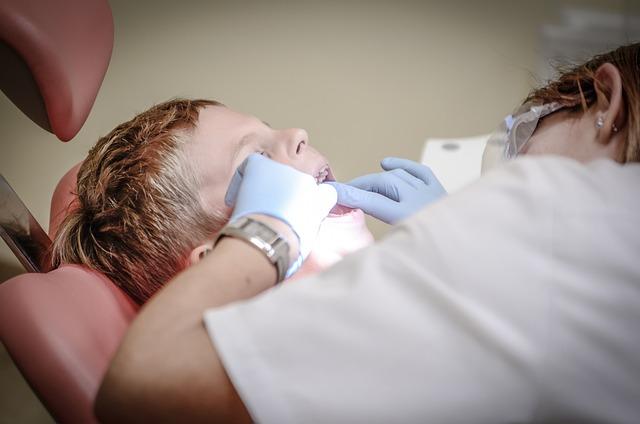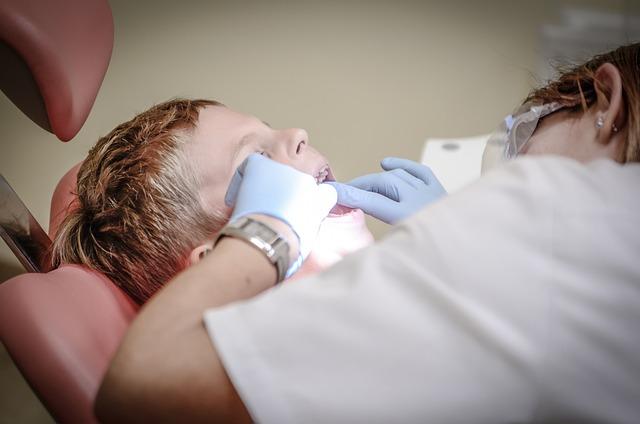Is Salt Water Good After Tooth Extraction: Exploring Benefits
Are you wondering if salt water is a good option for post-tooth extraction care? Look no further! In this article, we will delve into the benefits of using salt water as a natural remedy to promote healing and alleviate discomfort after a dental extraction. Backed by sound research and dental expertise, we will explore the reasons why salt water may be a reliable and effective solution. So, sit back, relax, and let’s dive into the world of salt water and its potential advantages in the aftermath of a tooth extraction.
1. Understanding the Role of Salt Water in Post-Tooth Extraction Healing
Salt water plays a crucial role in promoting healing after a tooth extraction. By creating a saline solution, you can effectively clean the extraction site and prevent infection. Here are a few important points to understand about the role of salt water in post-tooth extraction healing:
1. Natural antibacterial properties: Salt, when dissolved in water, creates a saline solution that possesses natural antibacterial properties. This saline solution can help kill harmful bacteria in the mouth and minimize the risk of infection at the extraction site.
2. Gentle cleaning and soothing effects: Rinsing your mouth with warm salt water can provide a gentle cleaning action, helping to remove any food particles or debris that may be present. Additionally, the warm saline solution can have a soothing effect on the gums and reduce swelling or discomfort.
3. Promotes faster healing: The salt water solution can promote faster healing by keeping the extraction site clean and free from bacteria. It also helps in reducing inflammation and promoting blood circulation to the area, which aids in the natural healing process.
To use salt water for post-tooth extraction healing, simply mix half a teaspoon of salt in eight ounces of warm water. Gently swish the solution around your mouth for 30 seconds, focusing on the extraction site. Repeat this process two to three times a day or as recommended by your dentist. Remember, salt water rinses should not replace your regular oral hygiene routine but should be used as an additional aid in promoting healing after a tooth extraction.

2. Harnessing the Benefits of Salt Water: A Natural Aid for Tooth Extraction Recovery
When it comes to recovering from a tooth extraction, harnessing the benefits of salt water can be a game-changer. Salt water, with its natural healing properties, can aid in reducing pain, swelling, and inflammation, while also promoting faster healing.
Here are some key benefits of using salt water for tooth extraction recovery:
- Reduced pain: Gargling with warm salt water can help alleviate pain and discomfort associated with tooth extraction. The salt acts as a natural analgesic, providing a soothing effect.
- Decreased swelling and inflammation: Salt water has anti-inflammatory properties that can help reduce swelling and inflammation around the extraction site. This can speed up the healing process and prevent complications.
- Prevention of infection: Salt water is a natural antiseptic that can help prevent infection in the extraction site. It helps kill bacteria and promotes a clean environment for healing.
- Improved oral hygiene: Using salt water as a mouth rinse after a tooth extraction can help keep the area clean and prevent the buildup of harmful bacteria. This aids in overall oral hygiene and reduces the risk of complications.
It’s important to note that while salt water can be highly beneficial for tooth extraction recovery, it should be used as a supplementary aid and not as a substitute for professional dental care. Always follow your dentist’s instructions and consult with them if you have any concerns or questions.

3. The Science behind Salt Water Rinse: Promoting Healing and Alleviating Discomfort
Salt water rinse is a simple yet effective remedy for promoting healing and alleviating discomfort in various oral conditions. The science behind its effectiveness lies in the unique properties of salt and its interaction with the tissues in the mouth. Here’s a closer look at how salt water rinse works its magic:
1. Reducing inflammation: Salt has natural anti-inflammatory properties, which help reduce swelling and inflammation in the gums and other soft tissues. This can be particularly beneficial for individuals suffering from gum diseases such as gingivitis or periodontitis.
2. Killing bacteria: Salt is also known for its antiseptic properties, making it a powerful weapon against oral bacteria. When you rinse your mouth with salt water, it creates a hostile environment for bacteria, hindering their growth and preventing infections. This can aid in the healing process and provide relief from discomfort caused by oral infections or wounds.
3. Promoting osmosis: Salt water rinse works by creating a hypertonic solution, meaning it has a higher salt concentration than the cells in your mouth. This causes osmosis, where water is drawn out of bacteria and other harmful substances, causing them to shrink and eventually die. Additionally, this process can help cleanse wounds and remove debris, promoting faster healing.
To make a salt water rinse, dissolve half a teaspoon of salt in eight ounces of warm water. Swish the solution around your mouth for 30 seconds to one minute, making sure to reach all areas. Then, spit out the mixture and rinse your mouth with plain water. Repeat this process two to three times a day, or as recommended by your dentist, for optimal results.
Remember, while salt water rinse can be a helpful adjunct to your oral care routine, it is not a substitute for professional dental treatment. If you have persistent oral discomfort or any concerns, it is always best to consult your dentist for a proper diagnosis and treatment plan.
4. Soothing Soreness: How Salt Water Can Help Relieve Pain after Tooth Extraction
Salt water has long been used as a natural remedy for various ailments, and one surprising benefit is its ability to soothe soreness and relieve pain after a tooth extraction. The gentle, yet effective, properties of salt water make it an ideal solution for promoting healing and reducing discomfort in the mouth.
Here are some ways in which salt water can help alleviate pain and soreness after a tooth extraction:
1. Reduces inflammation: Salt water acts as a natural anti-inflammatory agent, helping to reduce swelling and inflammation around the extraction site. This can significantly alleviate pain and discomfort associated with the procedure.
2. Cleanses the area: Salt water has antiseptic properties that aid in cleansing the extraction site and preventing infection. Rinsing with salt water can help remove debris, bacteria, and food particles, promoting a clean and healthy healing environment.
3. Promotes healing: Salt water promotes the natural healing process by increasing blood flow to the area and aiding in the formation of new tissue. It also helps to remove any remaining blood clots or other substances that may hinder the healing process.
To harness the benefits of salt water for pain relief after a tooth extraction, mix half a teaspoon of salt in a glass of warm water. Gently swish the solution around your mouth for about 30 seconds, making sure to focus on the extraction site. Repeat this process 2-3 times a day or as recommended by your dentist.
Remember, while salt water can provide relief, it is essential to follow your dentist’s post-extraction instructions and take any prescribed pain medication for optimal recovery.
5. The Healing Power of Saline: Exploring the Antimicrobial Properties of Salt Water
Salt water, or saline solution, has been used for centuries as a natural remedy for various ailments. Its healing power lies in its antimicrobial properties, making it an effective solution for treating infections and promoting wound healing. Here are a few ways in which saline can benefit our health:
1. Wound Healing: Salt water acts as a gentle cleanser, helping to remove debris and bacteria from wounds. Its antimicrobial properties help prevent infection, allowing the wound to heal faster. Regular rinsing with saline can also reduce inflammation and promote tissue regeneration.
2. Nasal Congestion Relief: Saline nasal sprays are a popular remedy for relieving nasal congestion caused by allergies, colds, or sinus infections. The salt water solution helps to thin mucus and flush out irritants, providing instant relief and improving breathing.
3. Sore Throat Soothing: Gargling with warm saline can provide relief from a sore throat. The salt water helps to reduce inflammation, kill bacteria, and soothe the irritated tissues. For added benefits, you can also add a pinch of turmeric or honey to the saline solution.
It’s important to note that while saline solution has numerous healing properties, it should not be used as a substitute for medical treatment. If symptoms persist or worsen, it is always advisable to consult a healthcare professional.
6. Enhancing Wound Recovery: Salt Water’s Role in Reducing the Risk of Infections
When it comes to wound healing, salt water has proven to be a valuable ally in reducing the risk of infections. Whether it’s a small cut or a more significant wound, incorporating salt water into your wound care routine can greatly enhance the healing process.
Here are some key benefits of using salt water for wound recovery:
- Antibacterial properties: Salt water acts as a natural disinfectant, effectively killing bacteria that may be present in the wound. This helps prevent infections and promotes faster healing.
- Reduced inflammation: Salt water can help decrease swelling and inflammation around the wound, providing relief and facilitating the healing process.
- Improved blood circulation: Soaking the wound in salt water stimulates blood flow, which brings oxygen and nutrients to the injured area. This promotes tissue repair and regeneration.
- Draws out impurities: Salt water has the ability to draw out impurities and debris from the wound, keeping it clean and aiding in the removal of dead tissue.
It’s important to note that while salt water can be beneficial for wound healing, it should be used in conjunction with other recommended wound care practices. Always consult with a healthcare professional for proper wound care instructions, especially for more severe or deep wounds.
7. Keeping It Clean: How Salt Water Rinse Can Help Maintain Oral Hygiene during Healing
Salt water rinse is a simple yet effective method to promote oral hygiene during the healing process. This natural solution can aid in keeping your mouth clean and free from infection. Here are some key benefits of incorporating a salt water rinse into your oral care routine:
1. Reduces inflammation: Salt water has anti-inflammatory properties that can help reduce swelling and discomfort in the mouth. It can provide relief from conditions such as gum disease, canker sores, and mouth ulcers.
2. Kills bacteria: The saline solution created by salt water rinse acts as a natural disinfectant. It can help kill harmful bacteria and prevent the growth of infection-causing microorganisms in the mouth.
3. Promotes healing: Salt water rinse can accelerate the healing process by removing debris and food particles from the affected area. It can also help constrict blood vessels, leading to faster clotting and reduced bleeding after dental procedures.
To prepare a salt water rinse, simply dissolve half a teaspoon of salt in a cup of warm water. Gently swish the solution in your mouth for about 30 seconds, making sure to reach all areas, and then spit it out. It is recommended to use this rinse 2-3 times a day or as advised by your dentist.
Remember, while salt water rinse can be beneficial for maintaining oral hygiene during healing, it should not replace regular brushing, flossing, and professional dental care. If you have any concerns or questions, consult your dentist for personalized advice.
8. Natural Remedy or Myth? Debunking Common Misconceptions about Salt Water after Tooth Extraction
After a tooth extraction, many people turn to salt water rinses as a natural remedy for promoting healing and reducing discomfort. However, there are several misconceptions surrounding the effectiveness of salt water in this regard. Let’s debunk some of these common myths:
Myth 1: Salt water rinses prevent infection
While salt water rinses can help cleanse the mouth and reduce the risk of infection to some extent, they cannot completely prevent it. Salt water is not a substitute for proper oral hygiene practices, such as brushing and flossing. It is important to follow your dentist’s instructions and use any prescribed medications to ensure proper healing and minimize the risk of infection.
Myth 2: Salt water speeds up the healing process
Although salt water rinses can provide temporary relief and promote a clean oral environment, they do not have the ability to expedite the natural healing process. Healing after a tooth extraction takes time, and it is essential to follow post-operative care instructions provided by your dentist. These instructions may include avoiding certain foods, rest, and taking prescribed medications as directed.
Myth 3: Salt water rinses can replace prescribed mouthwashes
Salt water rinses should not be used as a substitute for any prescribed mouthwashes or medications recommended by your dentist. While salt water can help reduce inflammation and soothe discomfort, it is not a substitute for professional dental care. Always consult with your dentist or oral surgeon to determine the best course of action for your specific situation.
9. Maximizing the Benefits: Tips for Properly Using Salt Water to Aid in Tooth Extraction Recovery
Proper usage of salt water can greatly enhance the healing process after a tooth extraction. Here are some valuable tips to maximize the benefits and ensure a smooth recovery:
- Prepare the salt water solution: Dissolve half a teaspoon of salt in a glass of warm water. Make sure the water is not too hot to avoid any discomfort.
- Rinse gently, but thoroughly: Take a mouthful of the salt water solution and swish it around your mouth without vigorously gargling. Be gentle to avoid dislodging any blood clots that are forming.
- Timing is key: Rinse your mouth with the salt water solution 24 hours after your tooth extraction and continue this routine 2-3 times a day, especially after meals. This will help clean the area and prevent infection.
- Don’t overdo it: While salt water rinses are beneficial, excessive rinsing can delay the healing process. Stick to the recommended frequency and duration to promote optimal healing.
- Keep the salt water solution clean: Make a fresh batch of the solution every time you rinse. This ensures cleanliness and avoids any potential contamination.
By following these tips, you can effectively harness the healing power of salt water and expedite your tooth extraction recovery. Remember to consult your dentist if you experience any unusual symptoms or have concerns during the healing process.
10. Salt Water Rinse: A Safe and Effective Addition to Your Post-Extraction Dental Care Routine
After a tooth extraction, proper dental care is crucial to promote healing and prevent infections. One safe and effective addition to your post-extraction routine is a salt water rinse. This simple yet powerful solution can help alleviate discomfort, reduce swelling, and keep the extraction site clean.
To perform a salt water rinse:
- Mix half a teaspoon of salt with eight ounces of warm water.
- Stir until the salt is completely dissolved.
- Gently swish the salt water around your mouth for 30 seconds, ensuring it reaches the extraction site.
- Spit out the solution and repeat 2-3 times a day, especially after meals.
The benefits of a salt water rinse are numerous. It can help remove food particles and debris, minimize the risk of infection, and promote healing by reducing inflammation. Additionally, salt water has natural antiseptic properties that can soothe any discomfort or soreness you may experience after an extraction. Remember to follow your dentist’s instructions and incorporate this simple yet effective technique into your post-extraction dental care routine for optimal results.
Frequently Asked Questions
Q: Is it safe to rinse my mouth with salt water after tooth extraction?
A: Yes, rinsing your mouth with salt water is not only safe but also recommended after a tooth extraction.
Q: What are the benefits of using salt water for oral care post tooth extraction?
A: Salt water has several benefits for oral care after a tooth extraction. It helps reduce pain, inflammation, and swelling in the extraction site. Additionally, salt water rinses can help prevent infection and promote faster healing.
Q: How does salt water help in reducing pain and inflammation?
A: Salt water works as a natural disinfectant and has soothing properties. When used as a rinse, it helps remove debris and bacteria from the extraction site, reducing the risk of infection. The salt in the water also helps draw out fluids, reducing swelling and relieving pain.
Q: Can salt water rinses prevent infection?
A: Yes, salt water rinses can help prevent infection after a tooth extraction. The saline solution helps create an environment that is less favorable for bacterial growth, reducing the risk of infection in the healing socket.
Q: How often should I rinse my mouth with salt water after tooth extraction?
A: It is recommended to rinse your mouth with salt water after every meal and before bed, for the first few days following a tooth extraction. This frequency helps maintain oral hygiene and promote healing.
Q: What is the proper way to prepare a salt water rinse?
A: To prepare a salt water rinse, dissolve half a teaspoon of salt in eight ounces of warm water. Stir until the salt is completely dissolved. Make sure the water is not too hot to avoid any discomfort while rinsing.
Q: How long should I continue using salt water rinses after tooth extraction?
A: It is generally advised to continue using salt water rinses for about a week after tooth extraction or until your dentist recommends otherwise. However, always consult with your dentist for personalized instructions based on your specific situation.
Q: Are there any potential side effects of using salt water rinses?
A: Salt water rinses, when used properly, have minimal side effects. However, using excessive salt or rinsing too vigorously may cause irritation or discomfort. It is important to follow the recommended guidelines provided by your dentist.
Q: Can I substitute salt water rinses with mouthwash or other oral care products?
A: While mouthwash and other oral care products can be beneficial for overall oral hygiene, they are not a substitute for salt water rinses after tooth extraction. Salt water has unique healing properties that aid in the recovery process and reduce the risk of infection.
Q: Should I consult my dentist before using salt water rinses after tooth extraction?
A: It is always advisable to consult your dentist before starting any post-extraction oral care routine, including salt water rinses. Your dentist will provide specific instructions based on your individual case and ensure the best possible outcome for your recovery.
Future Outlook
In conclusion, exploring the benefits of salt water after tooth extraction reveals several key takeaways. Firstly, salt water acts as a natural disinfectant, helping to reduce the risk of infection and promote faster healing. Secondly, its saline properties assist in soothing the gums and alleviating discomfort or swelling. Additionally, the gentle rinsing action of salt water can effectively remove any food particles or debris, aiding in maintaining oral hygiene during the recovery process. Lastly, utilizing salt water as a post-extraction rinse is a cost-effective and easily accessible option for individuals seeking a natural remedy. Overall, incorporating salt water into your oral care routine after tooth extraction can be a beneficial and effective choice, contributing to a smoother and more comfortable healing process.






